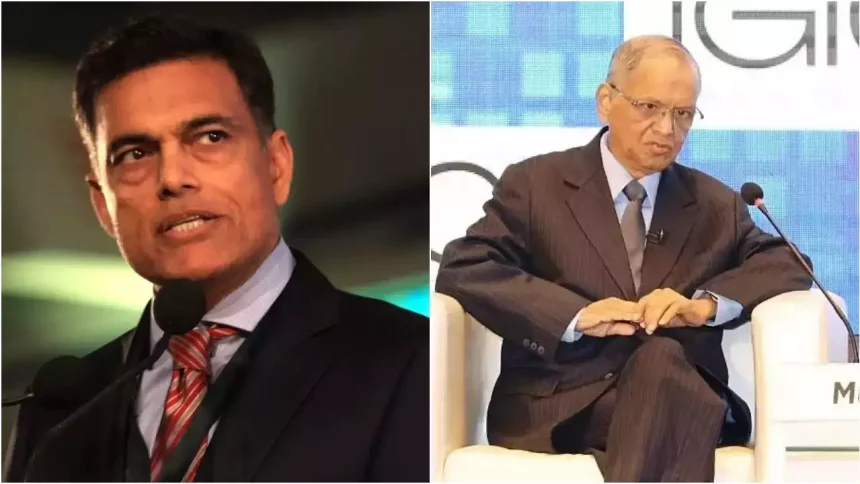The discourse on work hours and productivity gains momentum as Congress MP Manish Tewari lends his support to Infosys co-founder Narayana Murthy‘s proposition of a 70-hour work week. Tewari is a supporter of a radical change in work ethics. Suggesting that embracing longer hours might be the key to elevating India’s productivity on the global stage.
In Defense of Murthy’s call 70-Hour Work Week
Tewari takes to social media to express his views. Dismissing the controversy surrounding Murthy’s call for a 70-hour work week. Drawing parallels with the demanding schedules of public representatives. He argues that working 12–15 hours a day, seven days a week, is not uncommon in the realm of public service.
Sharing his own work habits, Tewari reveals that he often works on Sundays. Emphasizing the unwavering commitment required to perform his dual employment. The MP suggests that a 70-hour work week with one day off should be normalized. Making a case for it to become the standard work ethic, especially for India’s youth.
MP Tewari’s Vision for Productivity
To propel India towards greatness, Tewari contends that adopting a 70-hour work week with one day off and 15 days of annual leave must become the norm. However, he underscores the importance of ensuring there is sufficient work to justify this intense work ethic.
Public Responses
The debate has triggered responses from various corporate figures, each offering a unique perspective on the evolving nature of work culture. Harsh Goenka, Chairman of RPG Enterprises, views the debate through the lens of a hybrid work culture. Suggesting that ambition, purpose, and productivity now take precedence over fixed work hours.
As opinions pour in, Anupam Mittal of Shaadi.com and Namita Thapar of Emcure Pharmaceuticals share their thoughts. While Mittal seems to embrace the idea of working long hours, Thapar questions the impact on family time and mental health, highlighting the broader implications of an extended work week.
Author Chetan Bhagat’s Take
Well-known author Chetan Bhagat joins the conversation, advocating for a more balanced approach. While he supports productivity, Bhagat suggests a 35-hour work week. Emphasizing the need for those hours to be genuinely productive.
The debate over the optimal work hours continues, with public figures and corporate leaders contributing diverse perspectives. Tewari’s endorsement of Murthy’s proposal sparks contemplation on whether a 70-hour work week could indeed be the catalyst for India’s ascent to global economic prowess. The evolving work culture remains a topic of intense discussion, promising continued dialogue on the delicate balance between productivity and quality of life.


